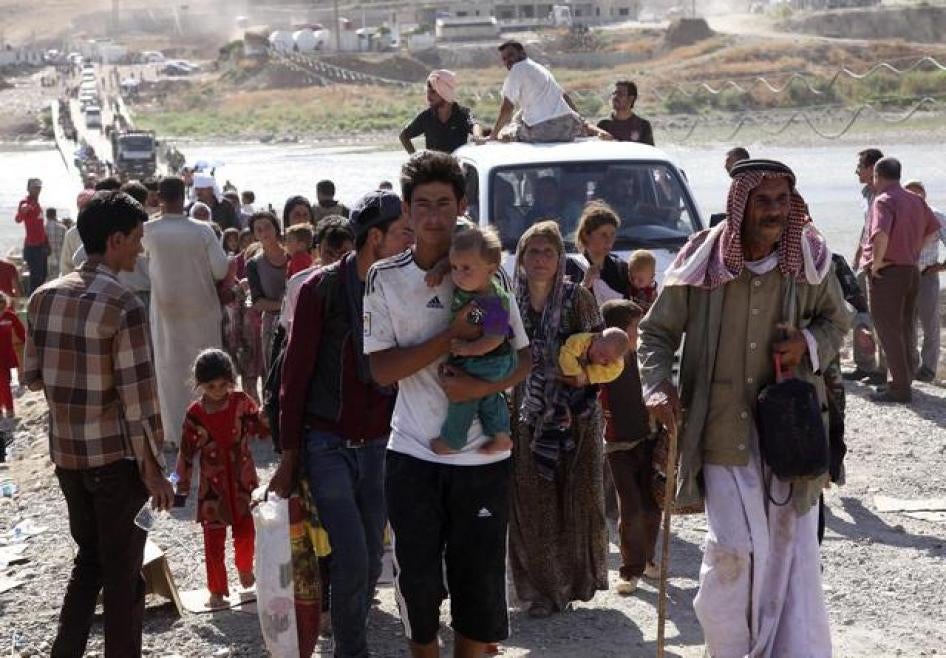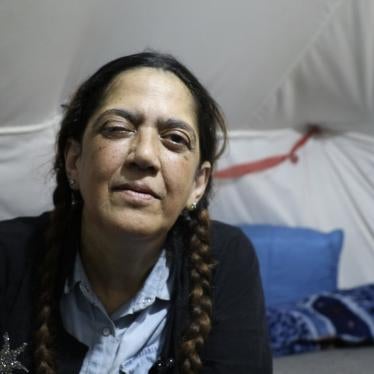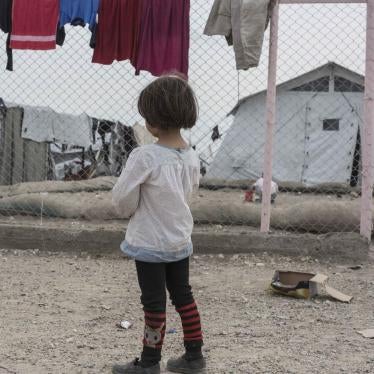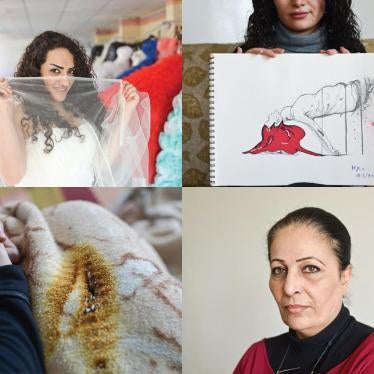The “unimaginable horrors” that the Islamic State (ISIS) is committing against the minority Yezidis, documented in a report released on June 16 by the UN-mandated Independent International Commission of Inquiry (COI) on the Syrian Arab Republic, shows the urgent need for concrete steps to ensure justice for these crimes.
In August 2014, ISIS fighters overran Yezidi towns and villages around Sinjar, in northwestern Iraq, executing many men and capturing women and girls. Their intent soon became clear in slave markets ISIS set up in Mosul and elsewhere, where they sold the women and girls to their fighters into sexual or domestic slavery.
The COI report found that the crimes against the minority Yezidis amount to genocide.
Human Rights Watch has found that the abuses against Yezidi women and girls, including abducting them and forcibly converting them to Islam and/or forcibly marrying them to ISIS members, amount to war crimes, may be crimes against humanity and may be part of a genocide against Yezidis. Women also reported that ISIS members took their children from them, physically abused their children, and forced the women and girls to pray or take Islamic names.
The commission says that ISIS still holds about 3,200 women and children, most in areas it controls in Syria. The report says that separating men and women, inflicting mental trauma, taking children away from their families and forced conversions, are among methods intended to destroy Yezidis as a people.
There has been considerable attention to the plight of Yezidi women in the media, but little discussion on how to provide justice for these terrible crimes. The commission says the UN Security Council should “refer the situation to justice, possibly to the International Criminal Court (ICC) or an ad hoc tribunal.”
The ICC has a mandate over crimes of genocide, war crimes and crimes against humanity. Iraq, like Syria, is not a party to the Rome Statute, which set up the court. Prime Minister Haider al-Abadi told Human Rights Watch in March that Iraq has no plans to join the court—out of apparent concern that the court would also be able to examine grave abuses by government security forces.
Both the Iraqi government and the semi-autonomous Kurdistan Region of Iraq (KRI), where hundreds of thousands of Yezidis have sought safety, says they have ISIS fighters in custody. In fact, the government says it has captured scores of ISIS fighters since the start of its Fallujah offensive. But to Human Rights Watch’s knowledge, no criminal justice authorities in KRI or the rest of Iraq are investigating or prosecuting ISIS members for war crimes or crimes against humanity, including crimes against Yezidis.
A “Genocide Committee” in Dohuk, a major city in Iraqi Kurdistan, which was established by the Kurdish government, is attempting to document these crimes. But its head investigator, Judge Ayman Bamerny, told Human Rights Watch the committee has no link to the Kurdistan Regional Government’s judiciary.
Similarly, in Baghdad, Judge Abd al-Sattar Bir Qadar, spokesperson for the judiciary, told Human Rights Watch in March that there have been no judicial investigations against captured ISIS members for war crimes or crimes against humanity The only exception has been a patently unfair trials, in July 2015 and February 2016, each lasting all of two hours, that convicted 24 men for the mass killing a year earlier of up to 1,700 Shia military cadets.
In March 2015, Iraq’s Council of Ministers declared ISIS crimes against Yezidis to be genocide, but Iraq has no provisions in its domestic law for war crimes, crimes against humanity, and genocide.
Yezidi victims of human rights abuses have a right to justice, not just government declarations with no consequences. Iraq should incorporate war crimes, crimes against humanity and genocide into its penal code and start investigations into credible allegations of abuses by ISIS. Iraqi authorities should also hold their own forces to account for their serious crimes. Iraq should also join the ICC, as membership could provide an impetus for Iraq to ensure accountability for the worst crimes by all sides. The US should press Iraqi authorities to make that a priority.
Countries that support Iraq’s war against ISIS, including Iran, Russia, the United States, Canada, Australia and European states should support Iraqi efforts to investigate these crimes and provide redress for its victims. They should urge Iraq to pursue impartial investigations of serious crimes by all sides, and offer Iraq technical assistance and judicial cooperation. Judicial authorities in Baghdad and Erbil told Human Rights Watch that there have been no exchanges of information in either direction with European countries that that have suspected ISIS fighters in custody.
Letting grave crimes against Yezidis and others go unpunished is a stain not only on the Iraqi government, but on all countries that have vowed to protect groups like the Yezidis against threats of extermination and that have committed themselves to supporting justice for grave abuses whenever and wherever they occur.









